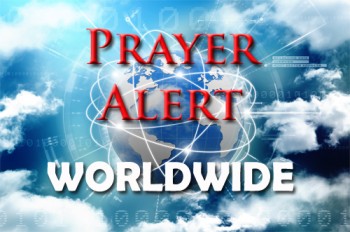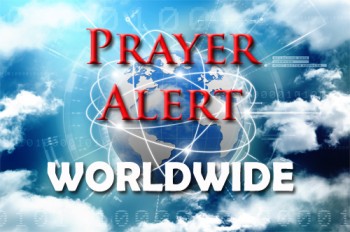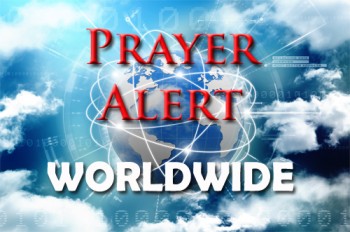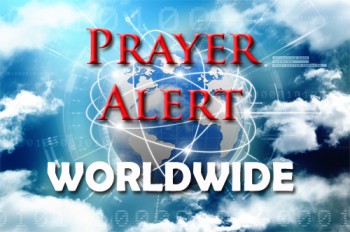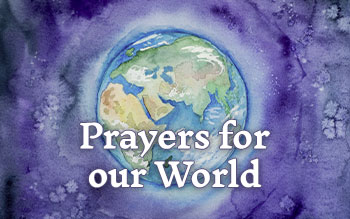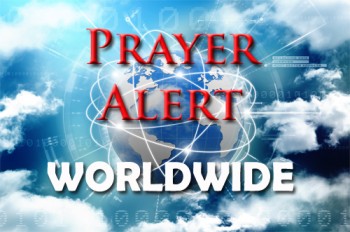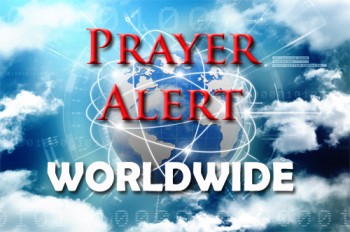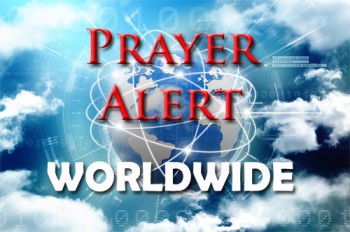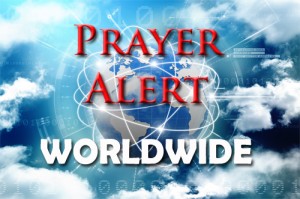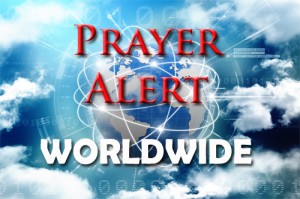Displaying items by tag: Armenia
Turkey: Armenian genocide
In 1915 two million Armenians lived in Turkey; today there are fewer than 60,000. Successive regimes deny that there was such a thing as an Armenian genocide. Turkey now appears intent on reigniting the hatred by helping Azerbaijan wage war on Armenia in the context of the Nagorno-Karabakh dispute, which erupted into armed conflict in late 2020. Turkish mercenaries and their Azerbaijani partners have ISIS-like behavior. They tortured beyond recognition an intellectually disabled 58-year-old Armenian woman before murdering her. Her family identified her by her clothes. When a random pedestrian was asked, ‘If you could get away with one thing, what would you do?’ She looked at the video camera and smiled saying, ‘What would I do? Behead twenty Armenians.’ 24 April was Armenian Genocide Remembrance Day, marking the start of the period in which Ottoman Turks massacred 1.5 million Armenians during World War I. On 27 April that Turkey said relations with the US had sunk to a new low after Joe Biden formally acknowledged that Armenians suffered genocide 100 years ago.
Armenia: prime minister refuses to resign
Armenian prime minister Nikol Pashinyan has warned of an attempted military coup, after the country's armed forces said he and his cabinet must resign. The army ‘must obey the people and elected authorities’, he told thousands of supporters in the capital Yerevan. His opponents held a rival rally. The military's top brass was angered by the PM's sacking of a commander. Mr Pashinyan has faced protests after losing last year's bloody conflict with Azerbaijan over the disputed region of Nagorno-Karabakh - an enclave internationally recognised as part of Azerbaijan but controlled by ethnic Armenians since a 1994 truce. During the six weeks of fighting late in 2020, Azerbaijan not only recaptured areas around the enclave but also took the key town of Shusha inside it. Under the Russian-brokered deal that emerged shortly afterwards, Azerbaijan keeps the areas it has captured.
Armenia hands over liberated territory to Azerbaijan
Armenia has begun handing over liberated territory to Azerbaijan as part of a peace accord that ended six weeks of fierce fighting over the Nagorno-Karabakh region. Residents of Azerbaijan's Kalbajar district have been occupied by Armenian forces for decades. Now they begin a mass exodus of the mountainous province in the days leading up to the official withdrawal day at the end of November. Some set their homes on fire rather than leave them for Azerbaijanis. A Russian peacekeeping contingent has set up checkpoints and positions as part of the terms that Armenia yields territory which Azerbaijan's forces gained in the fighting. Putin told his Azerbaijani counterpart to take care of churches, monasteries and shrines in areas that Azerbaijan gets under this cease-fire agreement. Moscow's peacekeeping mission, which the military said included soldiers who previously were stationed in Syria, comprises some 2,000 troops for a renewable five-year mission.
Armenia: genocide
The Azeri-Turkey offensive is worsening, with cluster bombs falling on innocent civilians even as they sheltered in churches. There is justifiable concern among Armenian Christians of a rising threat of ethnic cleansing from their historic Christian land. On 1 November the UN High Commissioner for Human Rights warned that the indiscriminate attacks on densely populated areas with associated loss of civilian life and destruction of infrastructure ‘contravenes international humanitarian law’ and ‘could be a war crime’. Recent reports indicate that large supplies of Israeli-built weapons, including devastating ‘kamikaze drones’ and unmanned aerial vehicles have been supplied to Azerbaijan and deployed against Christian civilians. Since September 90,000 Armenians, over half the region’s population of 144,000, have fled the conflict to take refuge in Armenia. Pray that the supply of military weapons to Azerbaijan will cease immediately and for guarantees that Israeli technology, including lethal drone strikes, will not be used in the conflict.
Armenia-Azerbaijan: Nagorno-Karabakh conflict breaks third ceasefire
BAKU/YEREVAN -- Deadly fighting between Azerbaijani and Armenian forces over the separatist Nagorno-Karabakh region has intensified as both sides blame each other for the collapse of a third attempt at a cease-fire.
Azerbaijan and Armenian reported civilian casualties in urban areas on October 28, two days after a U.S.-brokered cease-fire was to go into effect.
Azerbaijan’s Defense Ministry said 21 civilians were killed and 70 injured in Smerch multiple-rocket system attacks on the city of Barda, located in central Azerbaijan outside the Nagorno-Karabakh region. Four civilians were reportedly killed in another attack on the city on the previous day.
The Armenian Defense Ministry accused Azerbaijani forces of attacking civilian areas in Nagorno-Karabakh, including the shelling of a hospital and maternity clinic in the enclave’s main city, Stepanakert. The rocket attacks caused damage but inflicted no casualties. One civilian was killed and two others were injured in a rocket attack on the nearby town of Shushi (Susa).
Both sides denied the other's claims that civilians were being targeted.
The International Committee of the Red Cross (ICRC) said urban areas had been hit and that one volunteer from the Azerbaijan Red Crescent Society was killed in the shelling. Two other volunteers were injured.
"Alongside thousands of civilians, the ICRC witnessed intense shelling in urban areas on both sides of the front line today, leading to death, destruction, injuries, and desolation," it said in a statement.
"These latest exchanges signal that the Nagorno-Karabakh conflict risks spiraling out of control," it warned.
Both sides have claimed the other is targeting civilians during a month of intense clashes that have drawn in world powers seeking to halt the worst fighting the region since a 1994 cease-fire.
More at: https://www.rferl.org/a/armenia-azerbaijan-urged-to-seek-lasting-cease-fire-as-diplomatic-efforts-continue/30916763.html
Pray for the hostilities to cease and for a return to negotiations.
Pray for the safety of civilians living in the disputed regions.
Pray that external interference will be brought to light and that this war does not escalate further.
Please, earnestly pray for the people of these countries, so that God's peace may descend on the borders and reconciliation may be established between the neighboring fighting countries.
Nagorno–Karabakh: failed ceasefire and fake news
Fighting continues despite an agreed ceasefire; the Red Cross reports ‘hundreds killed’ in the conflict over Nagorno-Karabakh. Turkey and Israel are offering drone support and technologies. Azerbaijan wants to gain control of as much of its claimed territory as possible. Armenians have mobilised to stop it. The Red Cross reports indiscriminate shelling by both sides into towns and cities far from contested areas. On 21 October Russian bombers made a powerful air strike on a convoy and assembly point with Syrian mercenaries in Nagorno-Karabakh. However researchers found old video footage re-edited and wrongly labelled as portraying recent events. While the majority of online media is news reports, official government information or campaign slogans and images, there is doctored or old footage. Disinformation in conflicts is not uncommon, where accessing accurate information can prove difficult. Pray for peace in this part of the Caucasus: it’s a crisis entangling Russia, Turkey, Israel, Iran, and Azeri and Armenian diasporas.
Armenia/Azerbaijan: South Caucasus war?
The long-simmering conflict between Armenia and Azerbaijan over the Nagorno-Karabakh region erupted on 27 September, with over 100 confirmed deaths already in the fiercest fighting in years. Many are asking, ‘Will it escalate into an all-out war that threatens regional stability and drags in major outside players?’ https://www.bbc.co.uk/news/world-europe-54356336 For years, mainly Christian Armenia and Muslim-majority Azerbaijan have been at odds over the rugged Nagorno-Karabakh highlands. Between 1988 and 1994 the two sides fought a bloody war to control the enclave, which was part of Azerbaijan but mainly populated by ethnic Armenian Christians. The conflict resulted in over 30,000 dead, a million displaced, and a fragile truce that left Nagorno-Karabakh as a de facto independent state, recognised by Armenia but not by most other countries, including Azerbaijan. The recent violence sparked an uproar in Azerbaijan. Thousands took to the streets calling for the army to ‘recapture’ Nagorno-Karabakh.
Armenia-Azerbaijan: deadly border clashes
On 6 July, Azerbaijan’s president said peace talks with Armenia to settle the long-standing Nagorno-Karabakh conflict had stalled. He called talks between the countries' foreign ministers ‘pointless’. The Organisation for Security and Co-operation in Europe (OSCE) has long been trying to mediate a settlement of the conflict, which dates back to the 1990s. On 12 July clashes involving tanks and artillery erupted again on the border between the two ex-Soviet republics. On 14 July Azerbaijan's military reported four deaths, but said it had destroyed an Armenian fortification and artillery, while Armenia had not reported any deaths on its side in the clashes. Azerbaijan’s president said, ‘Armenia's political and military leadership will bear the entire responsibility for the provocation’, while Armenia accused its neighbour of ‘using artillery in an attack aimed at capturing Armenian positions’.
Armenia: update
Prime minister Serzh Sargsyan was forced to step down after weeks of mass demonstrations. Many hoped he would be replaced by a more honest and honourable man, Nikol Pashinyan. On 2 May 96% of Armenia’s capital, Yerevan, came to a standstill as thousands blocked roads when parliament refused to elect Mr Pashinyan as the new prime minister. They blocked roads to the airport, and roads to government buildings. Protests are expected to continue; even government employees have joined the protest movement called the ‘velvet revolution’.
Armenia: urgent international appeal
On 21 April, 37 human rights organisations and NGOs made an urgent appeal to the UN Council of Europe on behalf of Armenia. The opening sentence was, ‘We, the undersigned civil society organisations, wish to bring to your attention the political situation in Armenia that is a clear confrontation between the existing autocratic corrupt regime and the hope for democracy.’ Until 2015 Armenia had a semi-presidential governance system with direct elections for the president to hold a maximum of two terms of service. To maintain power after the expiry of his two terms, President Sargsyan changed the constitution. Since mid-March civil society groups have campaigned to oppose his election of a prime minister with a life-long dictatorship (a common trend in former Soviet countries). The peaceful protests, started independently by different groups, quickly attracted wide support of tens of thousands of dissatisfied people, who are facing brutal attacks by police and criminal groups every day. See
